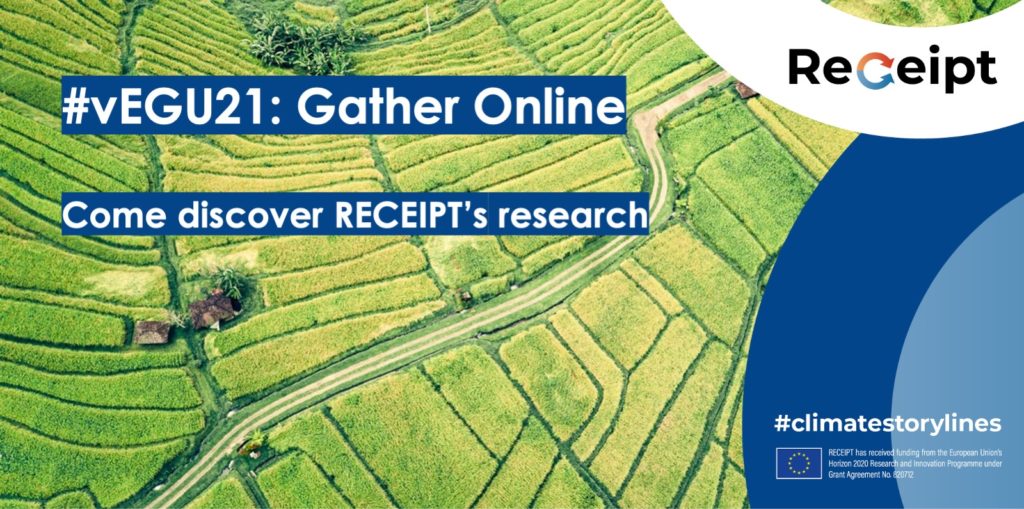Are you missing vEGU? You couldn’t attend all the sessions you hoped to join? Fear not! You can catch up or extend you vEGU experience. We have compiled some of the presentations by RECEIPT scientists at vEGU: Gather Online.

Some of our researchers are studying soybeans and the factors that are impacting their yields. Soy is a hugely important crop, as it feeds both humans, but also a big proportion of the livestock that produce our meat and dairy products. In his presentation “The impacts of hot-dry compound extremes on US Soybean yields ” Raed Hamed looked at the most impactful climate drivers to highlight the relation between combined events and agricultural impacts. His studies show that soy yields are most sensitive to a combination of high temperature and low soil humidity during the summer months.
Henrique Moreno Dumont Goulart also focuses on this important crop. Using machine learning, Henrique examines how likely weather conditions that triggered a soybean failure event in 2012 are to impact yields in the future. Henrique’s poster can be viewed here.
RECEIPT also studies how floods can lead to people being forced to leave their homes. Benedikt Mester presented how Global Flood Models are influenced by underlying elements (such as hydrological models and climate forcing), so this also impacts our ability to predictions new floods and their consequences. Discover Benedikt’s poster on flood modeling.
In her presentation “Gridded Harmonized Dataset for the Spatial Location of the Global Critical Infrastructure (CI) Network” Sadhana Nirandjan introduces a first of its kind global spatial dataset for the representation of this backbone to socio-economic development. The Critical Infrastructure System Index (CISI) that was developed through this study will be a valuable starting point for policy makers, planners, and researchers in several fields.
RECEIPT researcher Karin van der Wiel introduced how she develops storylines of future European drought events that resemble the 2018 observed drought event. She shows that future droughts will likely be characterised by reduced rainfall and lower amounts of available soil moisture. Discover Karin’s poster.
In his study “Economic ripple resonance from consecutive weather extremes amplifies consumption losses”, Kilian Kuhla found that consequences of consecutive disasters can cascade through global trade networks. This, in turn, amplifies consumption losses. Find out more in Kilian’s presentation.
Interested in the work done by RECEIPT? Tag along for the fifth European Climate Change Adaptation Conference, which we co-organise with the European Commission, JPI Climate and two other Horizon 2020 projects. Many of our researchers will be there, together with other experts on climate adaptation.
Published on : 12 May 2021
